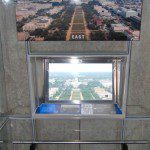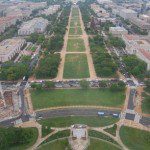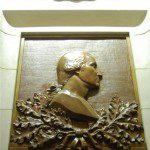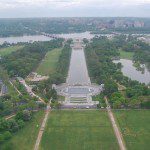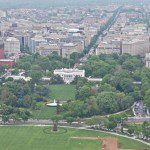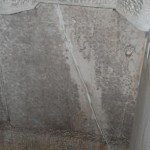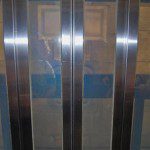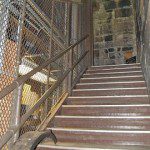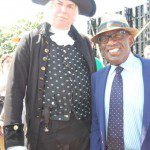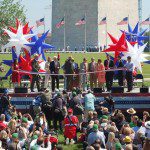Washington Monument Reopens: Fresh Views
By • May 16, 2014 0 4565
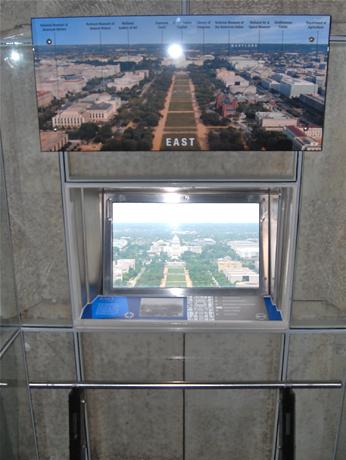
Closed for repairs since the August 23, 2011, earthquake, the iconic 555-foot obelisk dedicated to George Washington, first President of the United States, reopened to the public May 12.
The Georgetowner participated in a media preview May 10, when National Park Service rangers showed off the newly reopened Washington Monument and escorted writers and photographers to the top.
The 5.8-magnitude quake — unusual for the mid-Atlantic — caused significant damage to the monument which dominates the skyline of Washington, D.C. The monument’s foundation was laid July 4, 1848, and — after years of lack of funds and work halted — the structure formally opened in December 1884.
Scaffolding around the monument was erected for the meticulous repair work to be done. Cracks, especially at the top of the monument, the pyramid, were filled and braced or stones replaced. The work took almost three years.
Now, visitors may again take the elevator to the top of monument and look out windows at the height of 500 at each compass point, north, east, west and south. On the floor below, there is an exhibit area which tells the story of the Washington Monument.
Tickets are free from the Park Service, but there is a service fee of $1.50 to make a reservation. When NPS first offered tickets in mid-April, 16,000 tickets were snapped in 15 minutes. Most visitors use the online system these days. During the summer, hours have been extended. Visit www.nps.gov/wamo for details.
On hand at the Monday ceremony to reopen the monument were Sally Jewell, Interior Secretary; Delegate Eleanor Holmes Norton; Mayor Vincent Gray; Jonathon Jarvis, director of the National Park Service; Robert Vogel, superintendent of the National Mall and Memorial Parks; David Rubenstein, co-founder of the Carlyle Group; Caroline Cunningham, president of the Trust for the National Mall; and Al Roker of NBC News, master of ceremonies.
Jewell noted the need for private-public partnerships in her remarks. She especially thanked Rubenstein who donated $7.5 million to match funds allocated by Congress. For Jewell, it is about “ordinary citizens making extraordinary contributions.”
For his part, Rubenstein is considered a patriotic philanthropist, and he joked he had received a message from George Washington on his iPad over the weekend.
- Inside the Washington Monument, looking east toward the U.S. Capitol. | Robert Devaney

